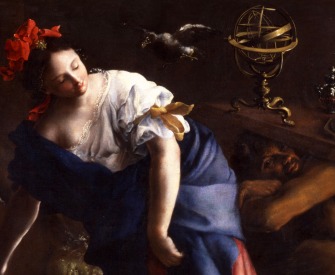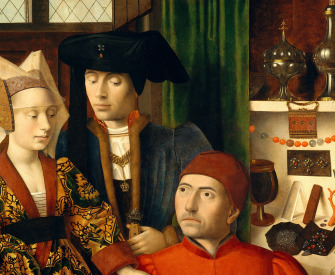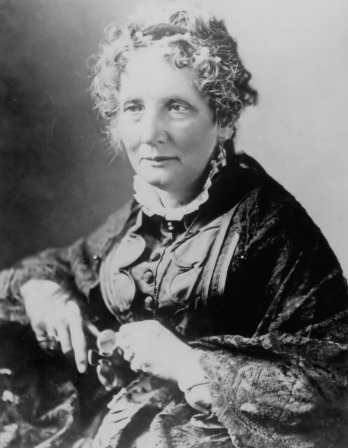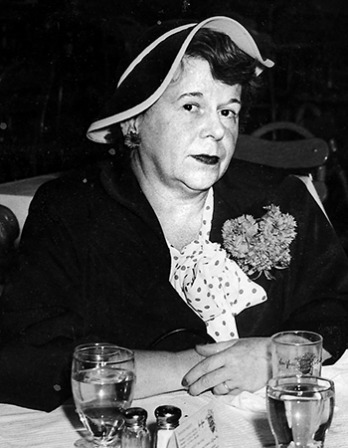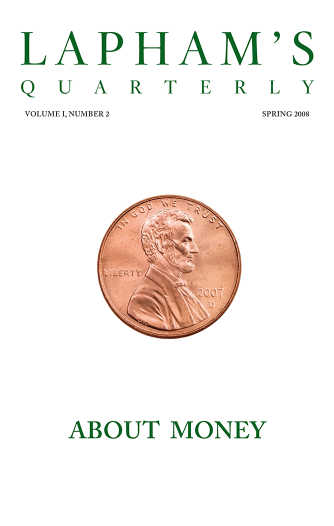That which the sober man keeps in his breast, the drunken man lets out at the lips. Astute people, when they want to ascertain a man’s true character, make him drunk.
—Martin Luther, 1569Fabled Powers
For an artist, a day of successful inspiration is also a day a systematic intoxication.
By Sven Birkerts
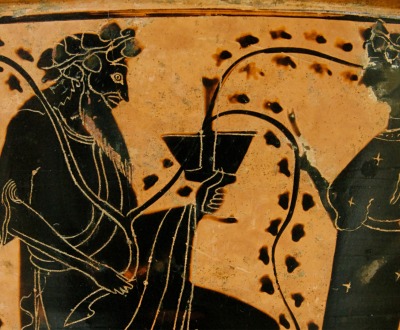
Dionysos and his Thiasus, upper tier of an Attic black-figure krater, from the circle of the Antimenes Painter, c. 500 BC. The Louvre, Paris. Photograph © Marie-Lan Nguyen.
For art to exist, for any sort of aesthetic activity or perception to exist, a certain physiological precondition is indispensable: intoxication.
—Friedrich Nietzsche
My ideal writing day, the day I would have if I could script it myself, would start with me waking clearheaded and rested, on my game, with nothing scheduled, nowhere to be but at the desk, nothing to do but agitate my naturally rested nervous system with a big cup of good strong coffee. Well enough cannot be left alone. Further, this pleasure must be taken at a distance from what will be the scene of the day’s labors—it is one of my many superstitions. Though of course the focus of that scene, the laptop’s glowing rectangle, is present in the mind’s eye and is already in occult ways being magnetized to receive and hold—to somehow elicit the first right phrase. Superstition, occultism—only the third ingredient is still wanting.
That first coffee initiates the process. Still downstairs in my armchair, I picture someone making their way down a very long corridor, snapping on switches as they go; vast electrical panels flash to life one by one. When the last switch has been snapped, I get to my feet and go back to the coffee maker. The second cup is now carried ritualistically up the attic stairs. And on this, the best of writing days, it will be the first good swig from it that puts everything into play. For with that smooth deep bitter, the wanted—the necessary—words mysteriously arrive. And they already hold in their cadence a trace of that lift, that slightest excitation of the mind’s normal measure, as well as the feeling of other words just behind them. There is no describing the promise of this moment. The Muse is on call! The whole process will now continue on: a sustained excitation, a flourishing that gets nudged along by reflective sips of the good black stuff—until finally it is no longer needed. For at a certain point the words find their own momentum, landing on that screen in sequences that feel deeply right, confirming for me yet again that the mind in flow is somehow capable of things that the mind at natural daily pace is not.
My fancied day at the desk—there is nothing like it, nothing one can do all by oneself that is better. In the best sustained moments there is an escape from the usual limits of the self, a surprising spilling over into something else, a tampering with the square solid day self that is otherwise always there. When language reaches that ideal saturation, then intention is surpassed and the words—all sound and felt shape—are arriving a half beat in front of the thought. I have had such days—when the sentences keep coming, and at a certain point I always think, Well, that has to be it, only to often feel still another run of syllables—a bonus. But eventually I register the falling off, and I obey the signal. I know to stop before I have stripped the nerves of their sheathing—while there are still inklings in the well.
Done, I will take a breath and look back, and on these occasions I can see without reading that these were nice long stretches of the prose that came to me, not exactly heavenly dictation, but nothing I could have planned either. There is the pleasure of tiredness. I lean the scythe against a tree and wipe my brow. And as I do—at that moment and not before—I feel the power of the new urge. Suddenly I want my earned reward. I want the thing that will take all that tension of focus and turn it slowly around, letting what was tightened up go loose, smoothing down every sharp corner. For me this is wine, something red that has been aged in oak, the gift of gifts. I don’t need a remarkable vintage. A tolerable Cabernet or Merlot or Shiraz or Zinfandel or Malbec will do just fine. If it is five o’clock, I mean.
Naturally, on the ideal day things work out just right: the day’s output gets saved and tucked away (unread—for one never reads words written in a particular state while in that same state) just as the confident sweep of the second hand brings the minute hand to the top of the hour. And as I cradled my morning coffee all those hours ago, so now I come downstairs and cradle the bowl of the generous glass I have poured, determined to sit with it, alone, in silence, thinking nothing at all, letting the mind go completely idle as I peruse the living room, its pictures and books, or, if the weather is kind, the back deck, the old apple tree still putting out green, the clouds moving in caravan in the open spaces like something out of a children’s book.
It has been a day of inspiration, but also one of systematic intoxications. In my life with words, this—the mind’s intoxication—is the third ingredient, taking its place alongside superstition and occultism. I admit that I feel a slight twinge about admitting this, as if, even in using the word without any deep inebrious inflection, I am guilty of something—of assenting to excess, to pushing the self out of its healthy natural place. But in truth I was doing these very things, just as charged. With my expertly finessed administration of coffee toward the excitation of the nerves; by embracing those rushes of language, one after the next, with every phrase trying to push past the norm of usage; and then, at the end of it, unapologetically hastening toward the corkscrew and the desired glow. I think of T.S. Eliot’s wonderful line in his essay “Tradition and the Individual Talent”: “The progress of an artist is a continual self-sacrifice, a continual extinction of personality.”
The roots of art and intoxication are deep and entangled, as are, so often, the roots of words themselves. Take intoxication, where we encounter toxicum, the Latin taken from the Greek word meaning “poison for arrows.” A connection to the yew tree is adduced. The gist seems clear: intoxication is the result of something poisonous having been ingested. This gives pause. For me—who long ago gave myself over to trafficking with words—etymologies are sovereign. Never arbitrary, they excavate the places where collective experience meets signification. They hold truth. And so I have to wonder. Everything about my idealized writing day could be seen as the pursuit of a certain intoxication, a state that represents the transcending of the inner confines of the norm, and which has the accepted sense of joy, freedom, exhilaration—though, to be fair, also the sense of a punishable, because dangerous, excess.
Maybe this is the catch: that the poison, the harm, is not in the condition but its exacerbation. The problem is not wine but too much wine; not speed or passion but too much of either. Seen this way it seems a paradox word, elastic in terms of all that it encompasses, but also marking out limits, lines that say, do not cross. Intoxication: it is understood ever and always with reference to its contrary—temperance, sobriety, control. The tension between the two poles, expressed throughout the range of human endeavor, is felt with special acuteness in the creative arts, which probe the vast subliminal chaos of existence and look to give the findings striking and relevant form.
Any larger contemplation of this business leads right back to the Greeks, or at least to Nietzsche’s conjuring of the Greeks in his first major work, The Birth of Tragedy, more fully known as The Birth of Tragedy from the Spirit of Music, first published in 1872 and bearing a dedication to Richard Wagner. In it, Nietzsche proposed that Greek tragedy achieved its extraordinary impact through its vital melding of two opposed principles, principles which together constituted the Greek character. These were the Apollonian and Dionysian, in the broadest sense “order” and “chaos,” though of course it is their particularity as the philosopher develops it that makes the work memorable.
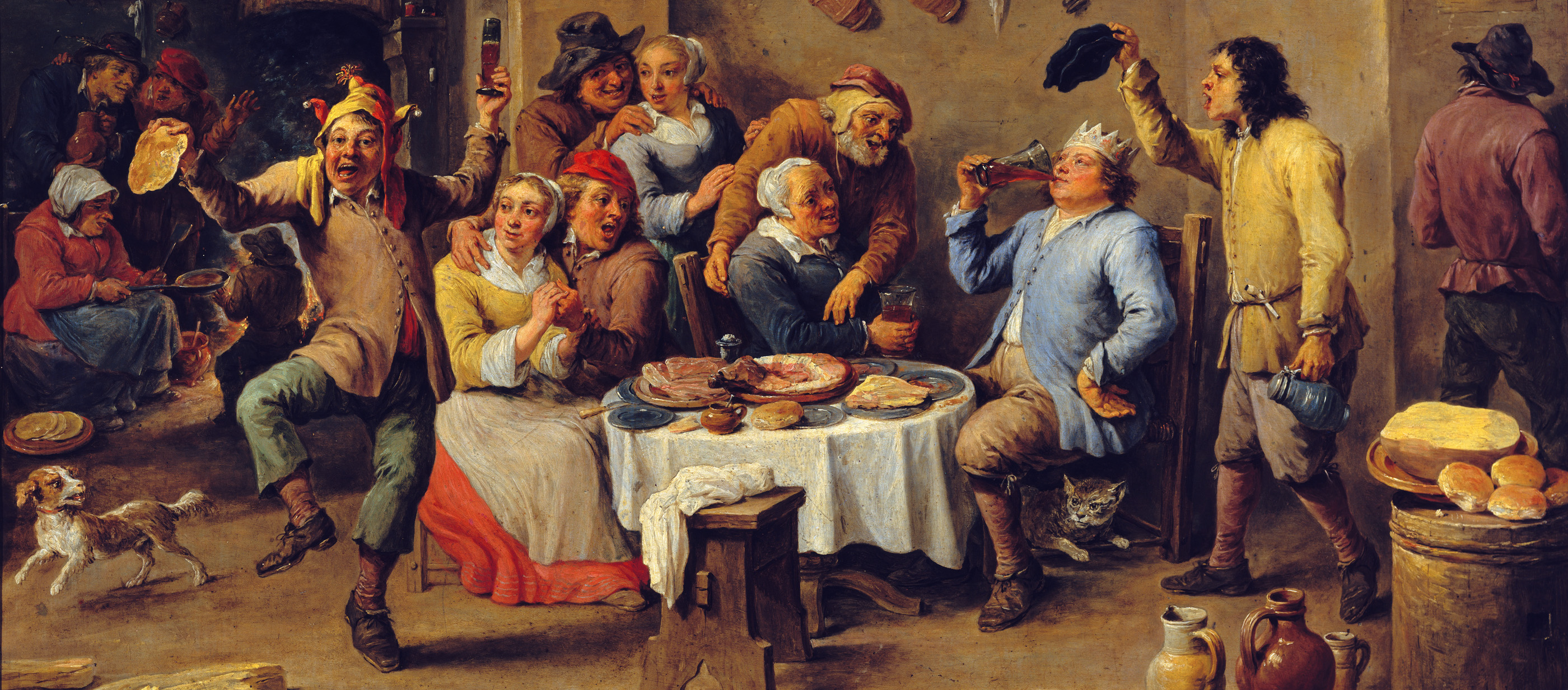
Twelfth-night (The King Drinks), by David Teniers the Younger, c. 1634–1640. Prado Museum, Madrid.
Nietzsche was much under the influence of Arthur Schopenhauer, and took from him, among other concepts, that of the principium individuationis, or individuating principle—that which in human life organized form out of undifferentiated chaos, a movement not unlike Sigmund Freud’s idea, not so long after, of orderly ego setting itself apart from chaotic id. This Nietzsche named after the god Apollo, son of Zeus and Leto, writing that “in him the unshaken faith in this principium and the calm repose of the man wrapped therein receive their sublimest expression, and we might consider Apollo himself as the glorious divine image of the principium individuationis, whose gestures and expression tell us of all the joy and wisdom of ‘appearance,’ together with its beauty.”
The opposing principle he ascribes to Dionysus, god of the grape harvest, also sometimes known as Bacchus. “Schopenhauer,” he writes, “has depicted for us the terrible awe which seizes upon man when he is suddenly unable to account for the cognitive forms of a phenomenon, when the principle of reason, in some one of its manifestations, seems to admit of an exception. If we add to this awe the blissful ecstasy which rises from the innermost depths of man, aye, of nature, at this very collapse of the principium individuationis, we shall gain an insight into the nature of the Dionysian, which is brought home to us most intimately perhaps by the analogy of drunkenness. It is either under the influence of the narcotic draft, which we hear of in the songs of all primitive men and peoples, or with the potent coming of spring penetrating all nature with joy, that these Dionysian emotions awake, which, as they intensify, cause the subjective to vanish into complete self-forgetfulness.”
Between the two the human soul is divided. And any more searching consideration of intoxication must consider this the opposition. We are not talking so much about the man at the bar, signaling for one more, looking to banish the anxieties of the long office day, as we are about a powerful impulse ever at odds with our need to account for and rationalize, to comprehend and manage—an impulse that, according to Nietzsche, first found fusion in the Greek tragedy, where the clarity of events on stage was counterpointed by the anarchic expressions of the satyr chorus, and that has ever since moved through our cultural and artistic expressions. It has been present as a tensing polarity, waxing or waning as the age demands, receding before the energies of the high classical, manifesting itself more overtly in periods of romantic countersurge; and, too, has announced itself as a tension in the productions of individual artists—composers, painters, writers, and for a time, most strikingly, poets—where the discipline of formal structure is ever at odds with the emotional material it looks to contain.
We don’t give poets much thought these days, or confer on them much trace of their fabled power. We have forgotten that for long periods, most recently in nineteenth-century European romanticism, the poet was at once practitioner of the ancient craft and the emblem for all creative potency, felt to hold those powers in the highest concentration. He was the retort to the burgeoning of rationalized industry and the spread of systems. Percy Bysshe Shelley, in his 1821 essay “A Defence of Poetry,” called these wielders of the language the “unacknowledged legislators of the world.” We hear few such claims urged these days, not for the poet or any artist or maker, though traces were discerned in the totalizing ambitions of a number of postwar writers, would-be harpooners of that white whale, the Great American Novel—maybe the last passing of the Dionysian baton. But in the mid-nineteenth century the irrational fervor was still alive. Ralph Waldo Emerson, in his essay “The Poet,” written in the early 1840s, asserts the deep connection between the impulses that underlie intoxication and what might be considered the very springs of creativity. He discovers in the surrender of the rational, controlling intellect—the very thing that John Keats, say, longed for in his great “Ode to a Nightingale” (“O, for a draft of vintage!”)—not just a removal from the pains of living, but an authentic primary power:
It is a secret which every intellectual man quickly learns, that beyond the energy of his possessed and conscious intellect, he is capable of a new energy (as of an intellect doubled on itself), by abandonment to the nature of things; that, beside his privacy of power as an individual man, there is a great public power on which he can draw by unlocking, at all risks, his human doors and suffering the ethereal tides to roll and circulate through him: then he is caught up into the life of the universe; his speech is thunder; his thought is law, and his words are universally intelligible as the plants and animals. The poet knows that he speaks adequately, then, only when he speaks somewhat wildly, or, “with the flower of the mind”; not with the intellect used as an organ but with the intellect released from all service…inebriated by nectar. As the traveler who has lost his way throws his reins on his horse’s neck and trusts to the instinct of the animal to find his road, so must we do with the divine animal who carries us through this world. For if in any manner we can stimulate this instinct, new passages are opened for us into nature, the mind flows into and through things hardest and highest, and the metamorphosis is possible.
This is the reason why bards love wine, mead, narcotics, coffee, tea, opium, the fumes of sandalwood and tobacco, or whatever other species of animal exhilaration. All men avail themselves of such means as they can to add this extraordinary power to their normal powers, and to this end they prize conversation, music, pictures, sculpture, dancing, theaters, traveling, wars, mobs, fires, gaming, politics, or love, or science, or animal intoxication, which are several coarser or finer quasi-mechanical substitutes for the true nectar, which is the ravishment of the intellect by coming nearer to the fact.
For Emerson, the intoxication is not escape but access, a means of getting closer to “the fact,” which might, with heartfelt imprecision, be called life itself. What he means by “public power,” I think, is something like what Carl Jung and others later meant by the phrase collective unconscious, the emphasis falling on the unconscious, that posited reservoir of our shared archetypes and primordial associations—that which reason by itself cannot fathom, for it is, in essence, antithetical to reason. Only through this other communion, through short-circuiting of the mediations of the day self—the order-making Apollonian ego structure—can the poet reach what is the truer immediacy. For this to happen, the tyranny of time—the feeling of being trapped in a forward-moving sequence of moments—must be banished. Intoxication is, among other things, the destruction of the timekeeper, a release into the duration state.
Sex and drugs and rock and roll.
—Ian Dury, 1977Emerson’s talk of the poet and the “ravishment of the intellect,” is only a slightly milder version of what Arthur Rimbaud called the “systematized disorganization of all the senses,” a striking prescription that deserves to be cited more fully. “The first task of the man who wants to be a poet,” wrote Rimbaud, “is to study his own awareness of himself, in its entirety; he seeks out his soul, he inspects it, he tests it, he learns it. As soon as he knows it, he must cultivate it!…I say you have to be a visionary, make yourself a visionary. A poet makes himself a visionary through a long, boundless, and systematized disorganization of all the senses. All forms of love, of suffering, of madness; he searches himself, he exhausts within himself all poisons, and preserves their quintessences. Unspeakable torment, where he will need the greatest faith, a superhuman strength, where he becomes among all men the great invalid, the great criminal, the great accursed—and the supreme scientist.”
Among the phrases of Rimbaud’s that strike here is “exhausts within himself all poisons, and preserves their quintessences.” Again, we find the paradoxical association of the lethal element with a process celebrated as an access to a visionary state of being—that risky but prized apotheosis. It is almost as if any transcendence, or dialectical leapfrogging action, requires some friction of opposites; that the momentum that leads to the making of beauty is prompted by an injurious spur.
Emerson’s charged-up and mission-driven sense of literature, overtly more Dionysian than Apollonian, has a strong “maximalist” coloration and would seem to favor works that are large in scope—ambitious—with the language energized and restraint in abeyance. That reaching for the very sources that he ascribed specifically to the poet was passed along as legacy. In a world gone urban and global, gone modern, it fell increasingly to the novelist to pick up where the lyric catalogs of Walt Whitman left off—to try to bring the new magnitude of things into language. Think of William Faulkner, James Joyce, Malcolm Lowry, Saul Bellow, Norman Mailer, William Gaddis, William Gass, Don DeLillo, Thomas Pynchon, and now, in more recent times, David Foster Wallace, Jeffrey Eugenides, Helen DeWitt, Jonathan Franzen, Rick Moody, Toni Morrison, and William Vollmann.
These are novelists most greedy for the big synthesis, who through scale and verbal energy alone communicate that there is a reality, an Emersonian “fact,” to be gotten at.
This ambition is manifest at the level of conception, and shows up in telltale ways in the prose itself (the novel is the ideal petri dish). Faulkner is a superb example. He held suspended in imagination the genealogical mare’s nest of his fictional Yoknapatawpha county—generations of people in contentious relation. His sentences, such as this one from the beginning of Absalom, Absalom!, reflect analogous complexity:
There would be the dim coffin-smelling gloom sweet and oversweet with the twice-bloomed wisteria against the outer wall by the savage quiet September sun impacted distilled and hyperdistilled, into which came now and then the loud cloudy flutter of the sparrows like a flat limber stick whipped by an idle boy, and the rank smell of female old flesh long embattled in virginity while the wan haggard face watched him above the faint triangle of lace at wrists and throat from the too tall chair in which she resembled a crucified child; and the voice not ceasing but vanishing into and then out of the long intervals like a stream, a trickle running from patch to patch of dried sand, and the ghost mused with shadowy docility as if it were the voice which he haunted where a more fortunate one would have had a house.
This is intoxicated prose, or else the designation is meaningless. We note, along with the reaching, self-surpassing cadence, which does not seem to accept the idea of limit, of stopping, the adoration of sounds and repetitions; the making of analogies. The language pushes with steady lyric force against the restraining norms of syntax, and its purpose is not mainly designatory or explanatory or anything that represents the order of reason. Faulkner has summoned his considerable resources of diction and a headlong rhythmic sensibility to create an experience at once sensory, emotionally suggestive, and dense with intimation. The object, though I don’t know that he would have presented it to himself thus, would seem to be to create at once the narrative surface texture of his world and a strong sense of the collective stuff—historical, geographical, mythological—that such a surface rests upon, or arises from. The crusts must be broken through; that elusive “fact”—of the saturated thickness of lived experience—must be simulated through language.
It could be that maximalist endeavors like this, tours de force of language, flourish best in certain eras, certain cultural climates—when, say, there is some felt mass of untapped, unarticulated material, and when the more conventional forms of access don’t quite avail. Faulkner was the first to express on a grand scale the vast repressed loss and bitterness of the post–Civil War South; similarly Joyce addressed the beginnings of the modern industrial metropolis and the emergence of what would be the massively influential science of psychology in Ulysses. The writer is driven by a need not only to deploy the traditional narrative resources but to somehow create the new climate that his vision requires. We feel this more recently with Pynchon’s Gravity’s Rainbow or Wallace’s Infinite Jest. Both are novels that synthesize and mimic new cultural intuitions (paranoia in the face of global systems, say) and aim as much to present a new felt reality as to tell a story.
Through their long and convoluted history the Apollonian and Dionysian principles have carried various labels and attributions—the two perhaps appearing as versions of “classic” and “romantic,” or “formal” and “free”—but there has always been the sense that the conflict between them is also a spark-throwing embrace, a tango. But is it ongoing? What of this primary opposition survives translation into our era? The public face of the literary—of the artistic in general—has changed a good bit in the last two decades. The idea of the created work has lost some of its old romantic luster; it has been to a considerable extent displaced by the idea of the product. That change has been driven largely by transformations at the level of publishing and marketing—which is to say by economic forces—as well as by the rapid digital assimilation of text. The independent and self-generated creations of the writer have been subsumed by systems of great algorithmic complexity; Dionysus is caught in the gauntlet of Apollonian circuitries. Small wonder that things in the literary sphere feel a good deal more slippery and ephemeral than they used to.
What has happened to the old Emersonian idealism? How are writers today regarded and how do they regard themselves in the light of his somewhat grand—or grandiose—conceptions? Are they working differently, pursuing careers differently, even seeing themselves differently? I would answer yes to all three. How not? The world has changed utterly. So much of the apprenticeship is now institutional, conducted at workshop tables; a good deal of getting published is about self-advocacy, devising “platforms” to promote the work. And these days the work itself is ever more likely to have its primary life as a file that can be summoned instantly to any screen.
Transformations so vast and diffuse are hard to document, and there will always be exceptions and obstinate outliers, Melvillean “isolatoes” who succeed along a path of singularity. But they are not so many, and to think of the creative artist probing the subliminal chaos now in Emerson’s, or Rimbaud’s, sense—as a seer, a seeker, an intoxicated one bent upon finding and delivering discovered truths—takes a stretch of the imagination.
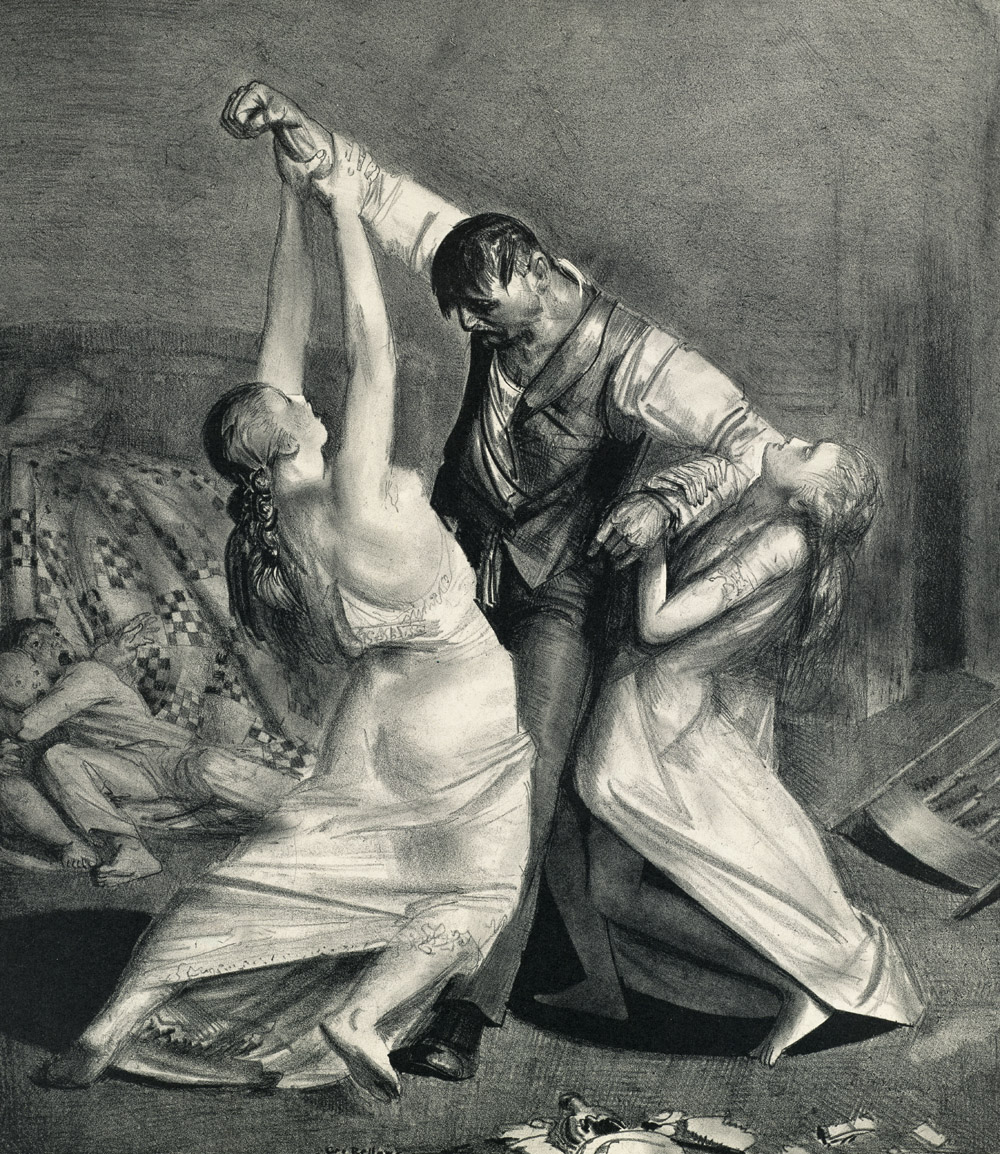
The Drunk, by George Wesley Bellows, c. 1923.
On the literary front, things in the decade plus since Wallace published Infinite Jest have been quiet. Few works of maximalist synthesis have captured the reading audience. Franzen’s Freedom and Eugenides’ The Marriage Plot might be cited by some as exceptions, but are they really? Both are linguistically tamer, and more structurally conventional and marketplace-driven than The Corrections and Middlesex, the big novels that preceded them. The question has to be asked: does this apparent shift have anything to do with our ever-more-rationalized marketplace, the fact that works of the maximalist sort do not, with very rare exceptions, sell? Bear in mind, too, that work of vast and demanding synthesis has never been a marketplace staple. Still, to one who tracks the leading literary indicators, the change is palpable—and possibly alarming. Is literary reading itself, as is often claimed, in a state of jeopardy? If so, or even if that is the perception, how does it affect our writers? How many are willing work in open defiance of what they see the market to be? Some will—praise them—but only some.
Have our gigantic global systems, and the market-driven rationalization of publishing—the apotheosis of “product”—at last neutered Dionysus? His was the power which has always stood in spirit counter to order, part of the core expressive dynamic of all our arts. But now I wonder: have the Dionysian and Apollonian lost their immemorial polarity? Have we in our signal-besotted push for progress not let the latter inundate the former out of existence? Artistically and in almost every other way ours has become a culture of proliferation. Information, perspectives, as well as the hypercharged clips and images of our global experience are within the radius of the keystroke. Nothing is unspoken, nothing is unaccounted. Every taste is given a niche and every niche is catered to. Here, one might argue, is more material than ever; here are opportunities for even greater acts of synthesis. But I am skeptical. Nietzsche wrote in Thus Spoke Zarathustra, “Nothing is true, everything is permitted.” The temptation is to invert the phrases and ascribe causality: where everything is permitted, nothing is true. Where nothing is true, where is the Emersonian fact to be found? This bears directly on the artist’s task. The idea that writers can keep producing grandly synthesizing or totalizing work—that has the ring of truth, of mattering—is debatable.
The thematic tension and compelling conflict that used to depend so much on the taboo, the unstated—all the things that carried the charge of the unconscious—are getting ever harder to generate. Everything is available everywhere all the time, and “divide and conquer” has been given a new twist. For where divisions and niches have been so rationalized, and genres of every description been refined into sub and subsub units, and so expertly marketed to potential consumers, the possibility of a larger sort of conquest disappears. Powerful forces need arenas built to scale. The literary outlook is not good for either Dionysus or Apollo. For millennia their contest has been, if not the only game in town, the main one. It seems there is no main game now.
I am at my desk again, coffee at my side, but it is not an ideal writing day, alas. It is a writing day like most writing days. The screen exerts not that subtle magnetism but instead what feels like an ever-so-slight counterforce, a staticky resistance, as if to land a word I will have to press the key extra hard. I know this is nonsense, of course, but it’s how I particularize the other feeling, which is that everything has either been long since spoken for or else skitters from the mind’s approaches, not to be had. Try as I may, I cannot find a way for language to take the lead. I have just these various thoughts, and without some excitement in the language none feels necessary. What is there to say that has not been said and said again, where is there a fresh trope? Really what I’m wondering is: where is there a fresh feeling, something unique and pressurized enough to pull word sounds to itself, to start up that natural but also completely new syncopation to which those sounds will rally. There is nothing, not yet, and so I do what will on occasion work for me. I type the phrases or sentences that are there, just to see if will find some way to break in. I am prospecting, dowsing for the irrational, trying with one feint and another to break the tyranny of the expected thought, the customary sequencing—the tyranny of my daylight sobriety. This is not me, I think. This mind is not my real mind; I know so well what the other state feels like, that sense of letting go that happens. But just as you cannot will to will, you cannot make yourself let go: letting go decides when it will take place. The cicadas buzz. Dionysus sleeps in some sun-shot primeval glade, until he is sleep sated, until, stirring, he feels the first antic prickle in the blood. Then, maybe, there is a beginning. Not before.
